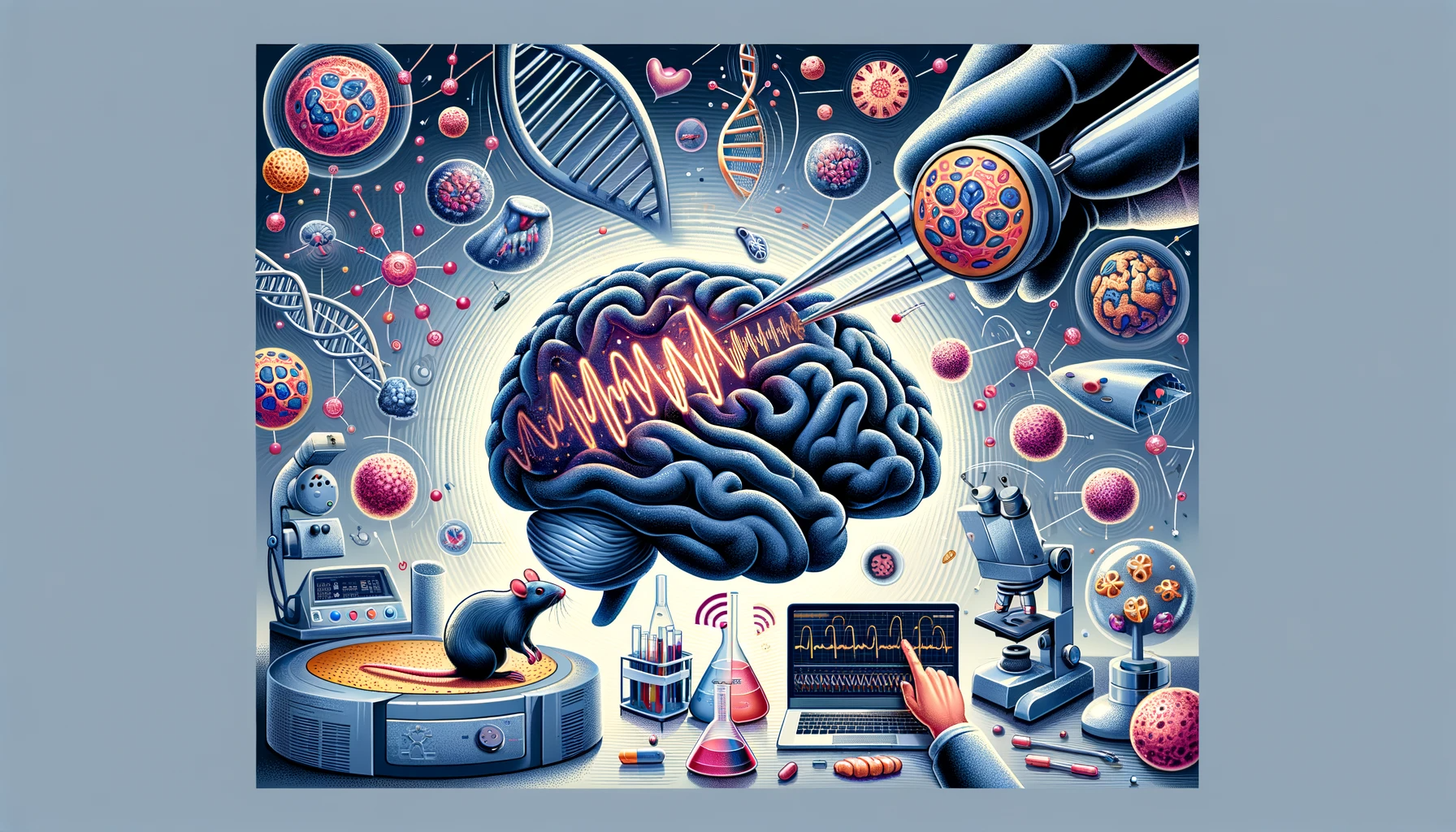Radiofrequency radiation (RFR) is a type of electromagnetic radiation that is used for wireless communication, such as cell phones, Wi-Fi, and 5G. While RFR has many benefits for modern society, it also raises concerns about its potential health effects, especially on the brain. In this article, we will review some of the latest scientific evidence on how RFR affects the brain, and what implications it may have for public health and policy.
RFR and DNA Damage
One of the main mechanisms by which RFR may affect the brain is by inducing DNA damage. DNA damage can impair the normal functioning of cells and lead to mutations, which may increase the risk of cancer and other diseases. Several studies have shown that RFR exposure can cause DNA damage in the brain cells of animals and humans.
For example, a study by the National Toxicology Program (NTP) in the U.S. exposed rats and mice to RFR at frequencies and modulations used by 2G and 3G cell phones for up to two years https://ntp.niehs.nih.gov/whatwestudy/topics/cellphones. The study found that RFR exposure was associated with an increase in DNA damage in the frontal cortex of the brain in male mice, the blood cells of female mice, and the hippocampus of male rats https://ntp.niehs.nih.gov/whatwestudy/topics/cellphones.
Another study by Turkish scientists Bas, Odaci, Sonmez, Kaplan and colleagues exposed rats to RFR at frequencies used by Wi-Fi for one hour a day for one month. The study found that RFR exposure caused significant DNA damage in the hippocampus and cerebellum of the rats, which are important regions for learning and memory https://ehtrust.org/brain-development-cell-phones-wireless-scientific-research-neurotoxic-effects-wireless-radiation/.
RFR and Blood Brain Barrier
Another possible effect of RFR on the brain is the disruption of the blood-brain barrier (BBB). The BBB is a protective layer of cells that prevents harmful substances from entering the brain from the blood. The BBB is essential for maintaining the homeostasis and integrity of the brain. However, some studies have suggested that RFR exposure can damage the BBB and increase its permeability, allowing toxins and pathogens to enter the brain.
For instance, a study by Dr. Seyhan and her team from Gazi University in Turkey exposed rats to RFR at frequencies used by cell phones for 20 minutes a day for four weeks. The study found that RFR exposure increased the permeability of the BBB and caused oxidative stress and inflammation in the brain https://ehtrust.org/wi-fi-wireless-radio-frequency-radiation-can-damage-the-blood-brain-barrier/.
Another study by Swedish researchers Salford, Nittby, Brun, Grafstrom, Malmgren, and Persson exposed rats to RFR at frequencies used by cell phones for two hours. The study found that RFR exposure damaged the BBB and caused leakage of albumin, a protein that is normally confined to the blood, into the brain.
RFR and Neurological Effects
Besides DNA damage and BBB disruption, RFR exposure may also have various neurological effects, such as altering brain activity, cognition, behavior, and mood. Several studies have investigated the effects of RFR on the brain using different methods, such as electroencephalography (EEG), functional magnetic resonance imaging (fMRI), and behavioral tests.
For example, a study by Italian researchers Vecchio, Babiloni, Ferreri, Curcio, Fini, Del Percio, and Rossini exposed healthy volunteers to RFR at frequencies used by cell phones for 45 minutes. The study found that RFR exposure modulated the EEG activity of the brain, especially in the alpha band, which is related to attention and memory.
Another study by Chinese researchers Zhang, He, Wang, Zeng, Jin, Zheng, and Yuan exposed healthy volunteers to RFR at frequencies used by cell phones for 30 minutes. The study found that RFR exposure altered the fMRI activity of the brain, especially in the regions involved in emotion regulation, such as the amygdala and the prefrontal cortex.
A third study by French researchers Barthélémy, Bouji, Le Hénaff, and Lévêque exposed rats to RFR at frequencies used by Wi-Fi for six hours a day for five days. The study found that RFR exposure impaired the spatial memory and anxiety of the rats, as measured by the Morris water maze and the elevated plus maze tests.
The studies reviewed in this article provide evidence that RFR exposure can affect the brain in various ways, such as causing DNA damage, disrupting the BBB, and altering neurological functions. These effects may have implications for the health and well-being of people and animals exposed to RFR, especially in the context of the increasing use and deployment of wireless technologies, such as 5G. Therefore, it is important to conduct more research on the effects of RFR on the brain and to establish health-based exposure limits that are based on scientific evidence rather than on erroneous assumptions.








